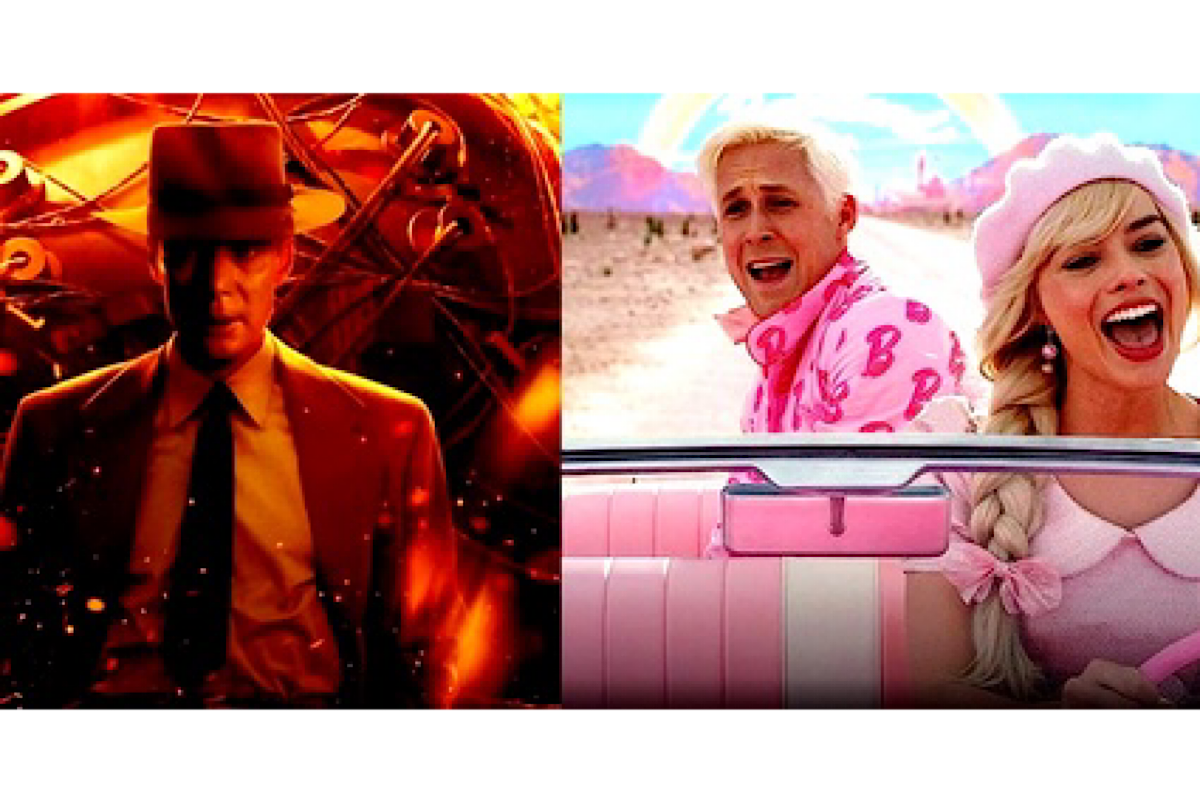Trump Unleashed
President Donald Trump’s first address to the US Congress in his second term was not just a policy statement ~ it was a declaration of dominance.

(photo:IANS)
Two movies that opened on 21 July 2023 have collected over one billion dollars. Seventyeight years ago, in the two cities that hit the headlines on August 6 and 9, over one lakh people were killed. A few days ago, the Japan office of the distributor – Warner Bros. – of one of the movies – Barbie – tweeted “We apologise to those who were offended by this series of inconsiderate reactions.” Inconsiderate, indeed very inconsiderate.
A fan placed Barbie on the shoulder of Oppenheimer with nuclear flames in the background and created a poster. The ‘Barbenheimer’ meme went viral from a film-discussion Twitter account. In response to the post, the official U.S. account for the movie replied: “It’s going to be a summer to remember.” How shameful! When over 1 lakh people died, they are trivializing the bombings. Many Japanese netizens responded by posting horrific pictures of the 1945 holocaust. Many have said that they will not watch the Barbie movie. The movie does not yet have a release date in Japan.
Advertisement
The second film, Oppenheimer, is about the US theoretical physicist J. Robert Oppenheimer who led the development of the world’s first atomic bomb. There are two threaded narratives – one of his leading the Los Alamos Laboratory that played a critical role in harnessing the discovery of nuclear fission, and the other of his downfall some years later. Even though Oppenheimer was hailed as a hero who ended the war against Japan – the surrender of the Empire of Japan was announced by Emperor Hirohito on 15 August and formally signed on 2 September 1945 – a hearing was held of advisers to the Atomic Energy Commission that declared him a security threat.
Advertisement
He was accused of having leftist ties at the University of California, Berkeley. And, there was his opposition to building an even bigger bomb, the “Super” or hydrogen bomb. His national-security clearance was revoked in 1954. This infamous hearing has taught us that scientists are very vulnerable to aspirations and jealousy of their peers. Even this film created a controversy in Japan. Many Japanese citizens have expressed their displeasure for not depicting the horrors of the bombings in the film. I have seen the film, and I felt that it was a good idea for the director, Christopher Nolan, not to have shown the horrors. It would have been very distracting for the narrative of the film. However, the fact revealed by a 2015 poll by public broadcaster NHK that 40 per cent of the Japanese population – 44 per cent of the Hiroshima population – felt that the US had no choice but to use the bomb was very surprising to me.
Oppenheimer was simultaneously remorseful and proud. This is how Oppenheimer expressed himself after the blast: “We knew the world would not be the same. A few people laughed, a few people cried, most people were silent. I remembered the line from the Hindu scripture, the Bhagavad-Gita… ‘Now, I am become Death, the destroyer of worlds’.” However, President Truman, who ordered the bombings, called Oppenheimer a ‘crybaby.’ Personal remorse apart, Oppenheimer hoped that the consequences of the bomb would make war unthinkable and lead to international controls on such weapons. In other words, nuclear deterrence would follow.
There has been no deterrence. Indeed, there has been escalation. The only saving grace is that “no first use” treaties have been signed. The escalation has resulted in using a nuclear arsenal as a shield to wage wars with conventional weapons. We are witnessing that right now. Russia versus Ukraine. Most countries are watching the war from the sidelines and taking advantage of the situation in more ways than one. As Richard Rhodes, author of the Pulitzer-prize winning 1986 book The Making of the Atomic Bomb, has said about this phenomenon “That’s a really sinister development, and fraught with peril on all sides.”
(The writer is National Science Chair, Government of India.)
Advertisement